Week-to-Week: Did this single bake doom the Great British Bake-Off to its current quagmire?
A theory on the issues harshing the vibes on TV's quintessential comfort show
Week-to-Week is the (mostly) weekly newsletter available to free subscribers of Episodic Medium. If you’re not already subscribed, click here to receive future newsletters and first reviews of shows we’re covering in the future.
It makes sense that the Great British Baking Show would have changed in the past 7 years—there’s new hosts, a new judge, and both a new commissioning network in the U.K. and a new U.S. distributor in Netflix. And if you, like me, have any kind of group chat of GBBO-viewing adults in your life, it’s likely that you’ve had some type of conversation about all of these factors as the discourse around the show continues to evolve.
I certainly have takes on all of these elements—Noel and Matt don’t offer enough warmth, Prue has never gained parity with Paul in the way Mary managed, and I do believe the change in distribution has played a part in these struggles. And we certainly need to have a conversation about the show’s insistence on having theme weeks based on other cultures without bringing in any kind of guest judge with actual experience with the cultures in question, which the New York Times cited as the show’s official transition “from comfort to cringe.”
But for me, the issue I’ve had the most trouble articulating is that over the course of the last few seasons, I’ve found myself having lost all interest by the time we reach the finale. I don’t think this is about the hosts, or the judges, and I don’t believe the show’s casting department has suddenly fallen apart or anything. Rather, the issue to me comes down to the core of the show’s design: the challenges they’re given. And I have developed a theory on the single bake that (maybe) doomed the show to its current struggles.
My basic criticism is that everything is too complicated. The original point of a signature, for instance, was giving the bakers an opportunity to show their personal approaches to flavor, offering a simple task that gives room for choices in ingredients. If you go back to first season’s Bread Week, the signature used to literally just be asking the bakers to bake “bread,” because you learn a lot about a baker by how they handle such a simple task. But the next season, they decided to adjust to a specific prompt—a “free-form loaf”—which is fine up until the point that you’re at Season 13 and they’ve had to keep coming up with variations. This season’s “pizza” was a real nadir, as it did nothing to showcase the baker’s ability to actually make bread given that most of the distinction was in the toppings as opposed to the dough itself.
The technical challenges are where the show has often reveled in making things complicated, but they’ve gone astray by moving further and further afield of actual baking in the process—tacos and spring rolls are cooking tasks, not baking tasks, but there’s a clear desire to not repeat past challenges and no clear guidelines on what skills are meant to be involved. Originally, the technical was the great equalizer for bakers who were skilled at preparing their own recipes but maybe weren’t as balanced in their skillset—now, it seems more like a trial than a test, without gaining much in the process.
But the real issue has been in the Showstopper. There was a time when it felt like the Showstopper was where bakers proved their mettle—they were given a significant task, yes, but the level of ambition they chose to apply to it was indeed their choice. As such, while the signature was about their personal approach to flavor, the Showstopper was their chance to show their “vision” for baking on a larger scale, engaging in their creative side to different degrees of success. Sometimes a baker would bite off more than they could chew, but other times they didn’t take a big enough bite from the beginning, It allowed the bakers who could be ambitious thrive, while revealing those who maybe didn’t have the vision it would take to truly separate themselves from the pack by letting them oversimplify the task at hand.
But more recently, the task itself has forced ambition onto the bakers, making it a question of their failure to execute on a specific prompt that forces creativity and complexity into the task from the get-go. When your task is a “3D Biscuit Scene,” you’ve left enough room for bakers to interpret that within their skillset, and testing their ingenuity with different styles of biscuit and the possibilities therein. However, when you task them to make a “3D Biscuit Mask,” you’re ensuring that everyone is doing something heightened and difficult, but you’re restricting the creativity involved. It offers the guaranteed novelty of freestanding cookie masks, yes, but at the expense of getting a greater variety of approaches that actually help us connect with the bakers as individuals rather than the spectacle of it all.
And as I’ve been thinking about it, I’ve decided that while I have no doubt that we can blame a lot of these things on the change in networks, I ultimately believe that the show’s challenge trajectory was determined by a single bake that rewired the show and its intended goals even before that change took place.
Paul’s “Lion Bread” from Series 6—which aired in 2015—is a majestic accomplishment. It came in a “3D Bread Sculpture” challenge, which was a first for the show, and which the judges acknowledged represented an escalation of their typical challenge structure. And it rightfully went viral, both when it aired in the U.K. and when it eventually made its way to the U.S.

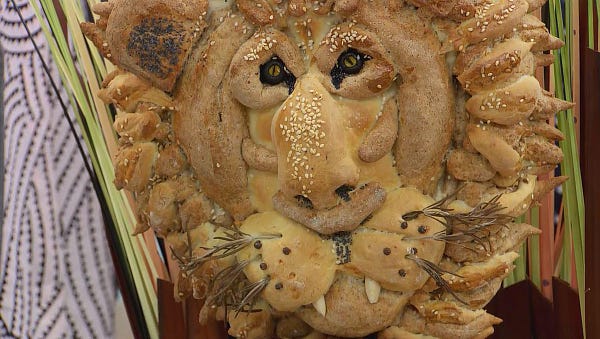
But in retrospect, Paul’s “Lion Bread” became the baseline for any type of ambitious creative endeavor in the tent. Showstoppers got reorganized so they would create greater chances for another Lion Bread, ignoring that it came from a far simpler challenge that was actually—in Mary’s eyes—best achieved by those who went with simpler designs like Ian’s flower, which actually won him Star Baker since Paul finished last in the technical. But because Paul was given a “special commendation” for the Lion Bread, and the internet went wild for the Lion Bread, both the show and the bakers reorganized themselves around creating Lion Bread moments.
And while I in no way wish to disparage the Lion Bread, here’s the simple truth: I don’t think you need to be able to make a Lion Bread to be a great home baker. In fact, I’d argue it’s far less interesting to see people trying to create their Lion Bread moment than it would be to have them work to express themselves within less complicated challenges. The show has overcomplicated everything to the point that I leave a season less able to judge a baker’s technical skill and command of flavors, and more able to determine their structural engineering skills and the amount of time they’ve spent brainstorming elaborate plans rather than the baking in and of itself.
There is space in the competition for your structural engineers, and there’s room in the challenges for an occasional prompt that forces everyone into a Lion Bread scenario. But when everything feels like it’s asking for a Lion Bread moment, the impact of those moments is diminished, leaving us with seasons that don’t develop the same narrative momentum.
I have no doubt changes in hosts/judges is harshing a lot of people’s buzz, but for me it’s the challenges themselves that aren’t connecting in the way the show used to. Do I think we might have eventually reached this point without the Lion Bread and the discourse around it? Maybe. Do I think that the show remaining on the BBC would have kept this from happening? Impossible to say. But for me, it’s the skeleton key that unlocks my core issue, and I’m officially starting the campaign now for a back-to-basics season that just asks the bakers to put their own spin on normal, straightforward recipes to see who is able to invest more of themselves into baking as a skill and an artform.
Episodic Observations
Rewatching the Lion Bread episode was wild because Mary Berry talks first in so many more critiques than Prue does. It’s stunning to see, and makes me wonder how much of the current struggles vibe-wise have to do with Paul just being the center of attention so much more dramatically.
Related: although it was not the first Hollywood Handshake, the one Paul gives to the other Paul in the signature does seem like the beginning of the Hollywood Handshake era, as Series 6 was the first to feature more than 2.
If we’re talking about comfort TV, HBO Max’s The Big Brunch is an example of a very basic challenge structure: they ask for a specific thing, and then they execute it. And there’s a lot of story they can get out of these challenges, with each baker less competing against the others and more competing against their own insecurities or self-limitations. As they focus on personal stories and the way winning the show would change their personal and professional lives, the challenges are designed to give them that space, without the spectacle overtaking that.
On the subject of HBO Max, I haven’t gotten to the second season of Sex Lives with College Girls, but I intend to eventually, if only to see how they manage to write off the erstwhile love interest/brother after he decided to bail between seasons.
I hope everyone has a lovely Thankgiving, but a reminder that things are very. much busy for paid subscribers around these parts: Josh Spiegel’s final Andor review arrives tomorrow, I’ll be covering this holiday week Survivor, Lisa Weidenfeld will have a review of this week’s Mythic Quest on Friday, and as a bonus Will Harris will have a review of Paramount+’s effort to revive CBS hit turned Netflix smash Criminal Minds as a streaming series, which debuts Thursday.

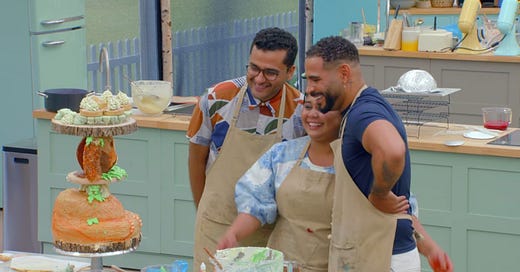



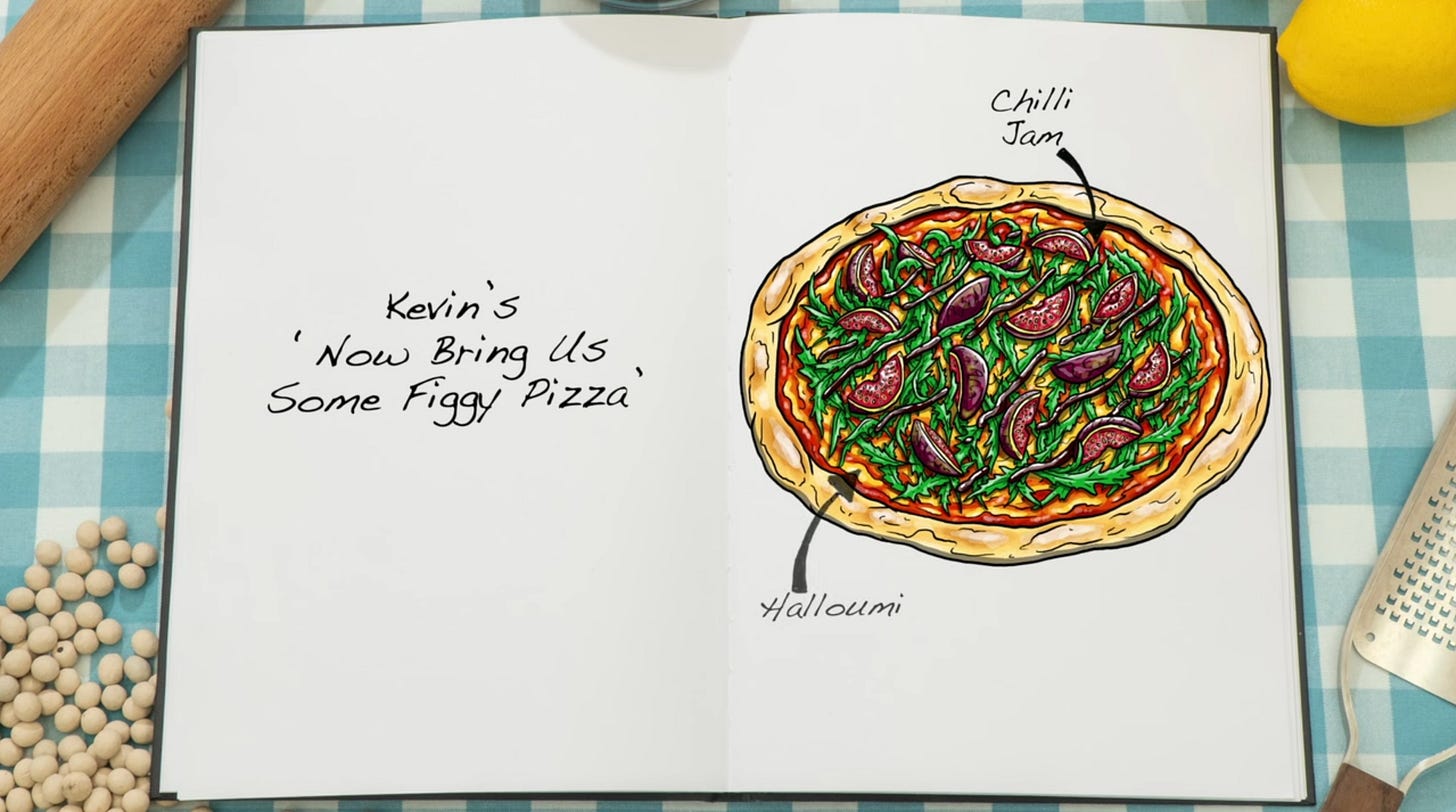
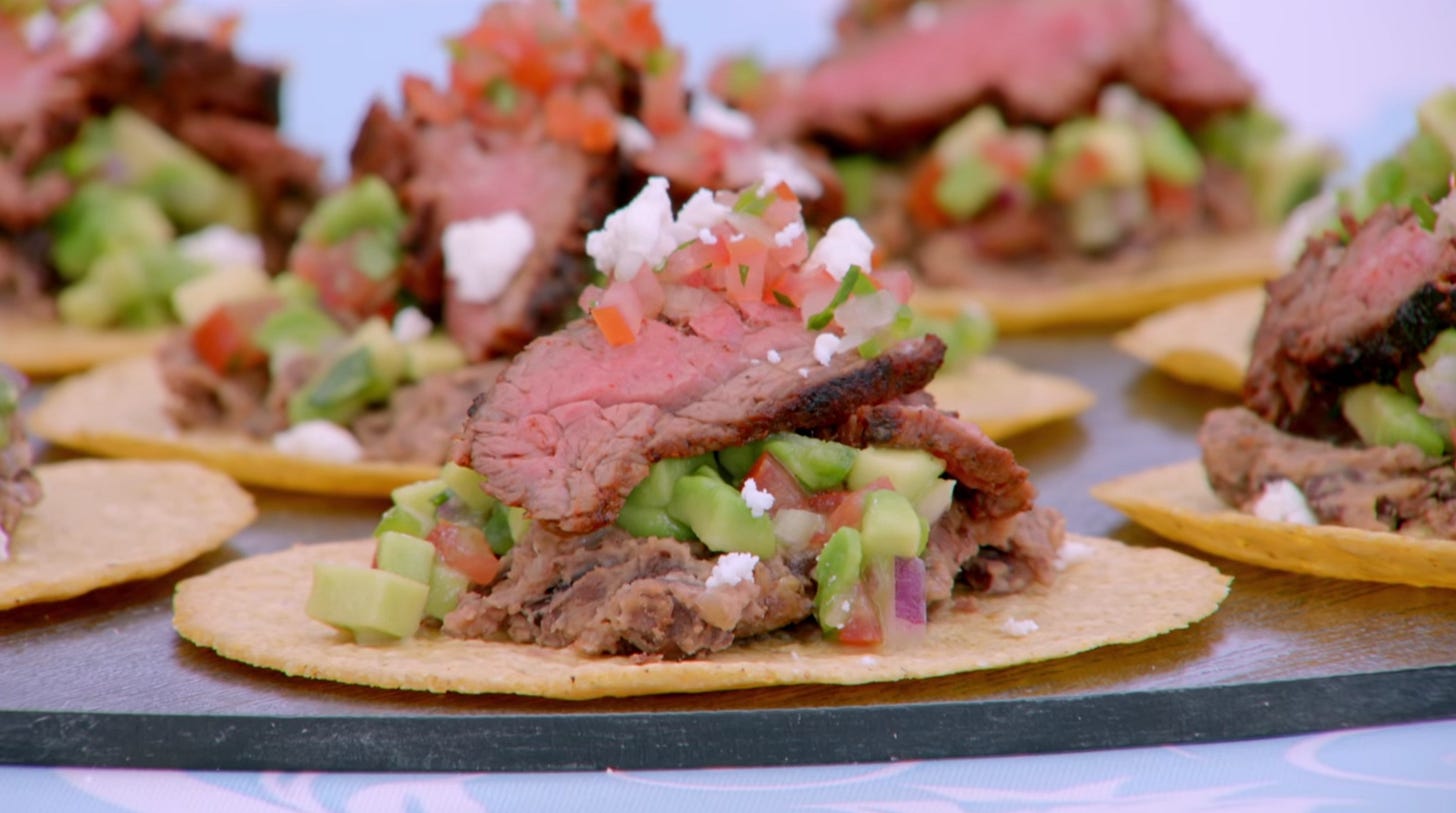
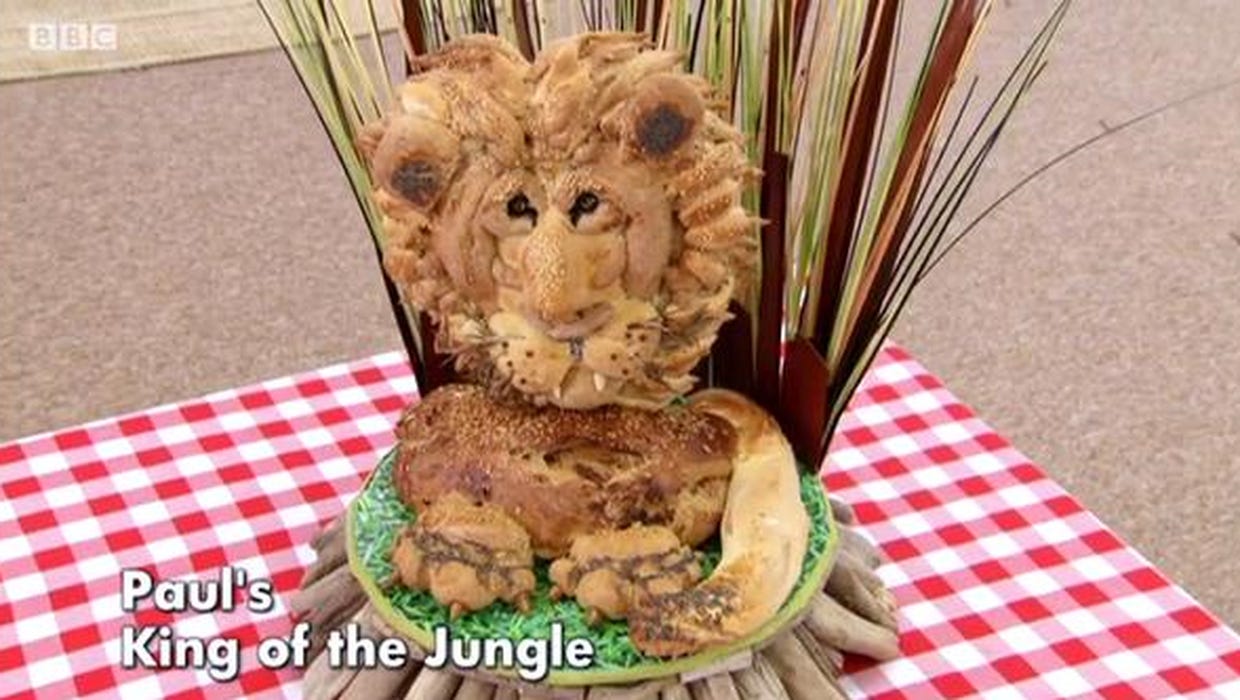
Generally agree with all of this, but I must say that the one thing that can still push through all this and bring back glimpses of the show's past glories is a great cast. I think the S12 final four might have been one of the best in the show's history — just incredibly watchable, likeable contestants, and in the process the season felt elevated above the general okay-ness of the show's modern incarnation.
I do think it's become more a decorating show than a baking show, with an added dash of bake whatever Paul tried on vacation thrown in.
For the first time, the Great Canadian Baking show ran almost simultaneously to GBBO. GBBO finished a week earlier, but due to missing one week and my sister not wanting to watch two to make up, I saw the Canadian finale first. It was quite instructive to watch them so close together. Can't deny, the Canadian came out better by the comparison.
Despite some of the same engineering challenges, the Canadian show is much closer to what the British show used to be. They've gone through a few sets of hosts, and the current ones are a good team. The judges are equal and both have warmth. They don't seem to go for the good cop/bad cop dynamic. I cared about all the finalists this year and would have been happy and satisfied if any of them one. (That said, #TeamChi for life!) If only it didn't have such annoying, stilted commercials with former winners, it would be perfect.